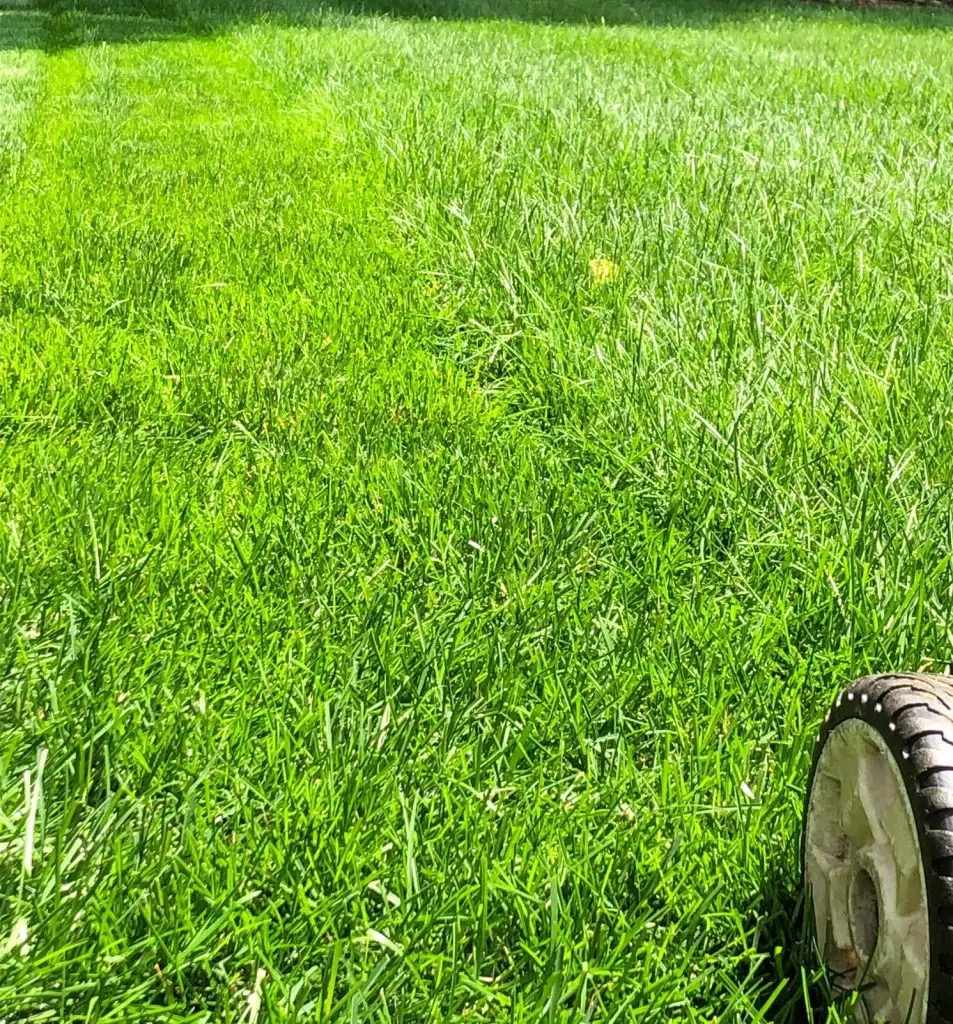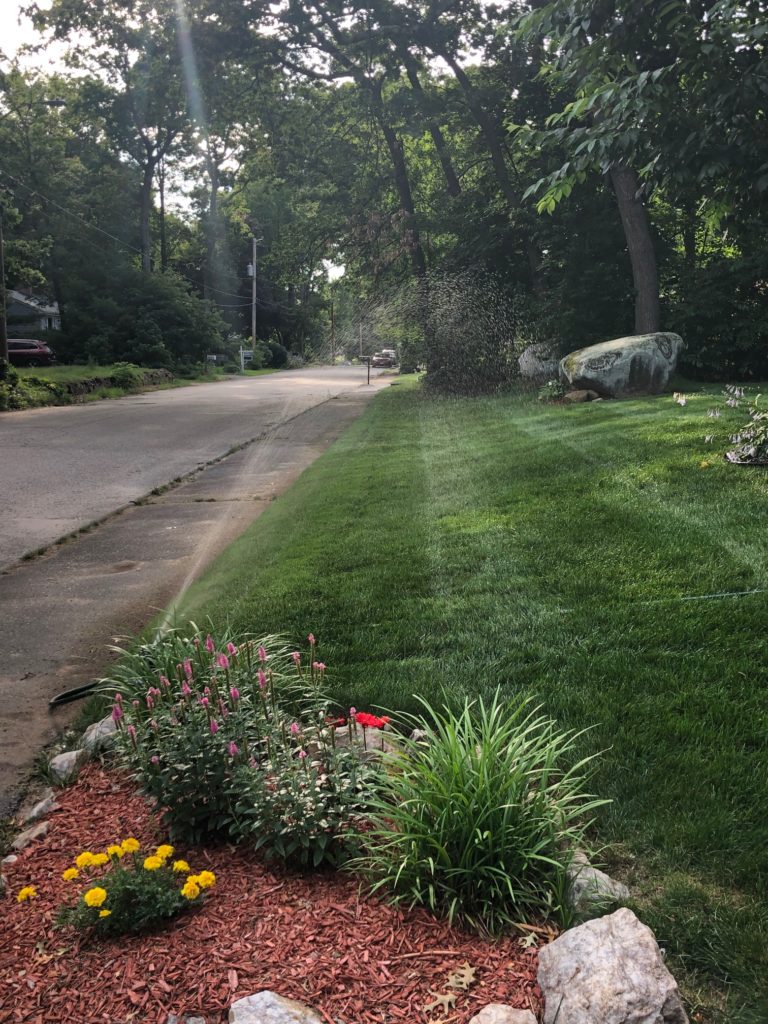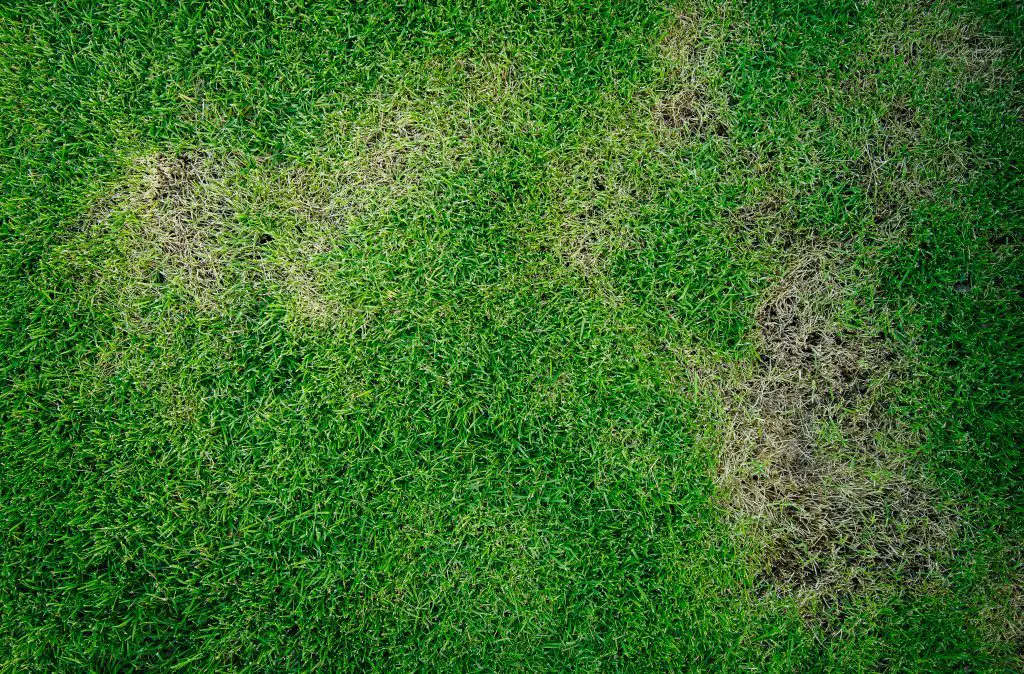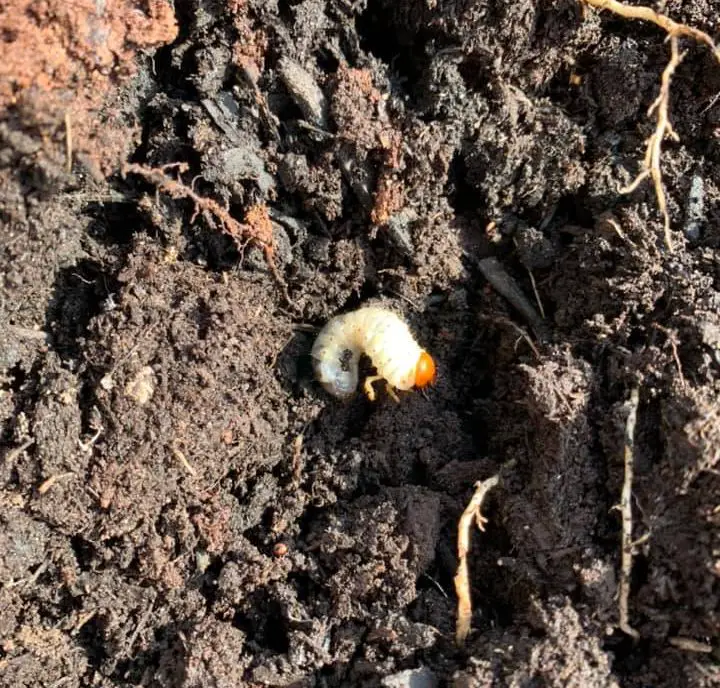As lawns come out of winter dormancy in spring, we have plenty of work to ensure we achieve a lush, healthy green lawn that brims with curb appeal and makes the neighbors downright envious. Lots of raking, spring clean-ups, and regular mowing can help get our lawns in shape, but there are also tasks like weed control, aeration (to remedy soil compaction), and other lawn care tasks that may be necessary. Once we put in the labor, it’s time to sail into summer. The following summer lawn care tips will help you maintain your gorgeous lawn throughout the long hot season.
Table of Contents
Preparing Your Lawn for Summer
Caring for a summer lawn is easier when you spend part of your spring preparing it for success. In fact, many people prefer putting in the hard yard work in the spring before the hot weather of the summer months comes to town. Good spring preparation can provide a strong foundation for your summer lawn and make caring for it much easier once the summer heat kicks in.
As you prepare for your healthy summer lawn, take time to assess your soil. Grass tends to prefer a neutral pH. Then, you can use a flexible leaf rake to rake out dead grass and dethatch your lawn. Next, evaluate for bare spots. If there’s soil compaction, you’ll want to aerate and then seed those spots so they fill in. Compacted soil can be a problem later in summer if you don’t contend with it in spring; it can prevent adequate moisture from reaching grass roots. A warm season grass like Bermuda grass will likely even spread on their own if that’s what’s growing as your turf.
Spring is also prime time to tackle weeds. Weeds like dandelions and other broadleaf weeds typically sprout up by late spring and can blemish your early summer lawn. For optimum weed control, apply a pre-emergent herbicide. To eliminate lawn weeds, you may also need a post-emergent herbicide (especially for crabgrass). If you choose to fertilize your lawn in spring, apply lightly. If you have cool-season grasses, applying a stronger dose in early fall is better. Finally, sharpen your mower blades and mow your lawn every six to seven days.
1. Summertime Mowing Tips

Frequent mowing in spring should gradually diminish by early summer. Grass slows its top growth during the summer months. Plus, taller grass is ideal for protecting the soil from excessive heat.
Warm season grasses can often be cut shorter, especially Bermuda grass if you want to encourage it to spread to fill bare patches. Cool season grasses such as Turf Type Tall Fescue can be left to grow about 4 inches before mowing.
Mulch with your grass clippings. Remember to keep the mower blade sharp so that it will sever each grass blade and not pull it, damaging turf crowns. Check your grass type, warm season grasses or cool season grasses, to be sure you’re mowing in accordance with its specific requirements.
And as always, follow the 1/3 rule (never remove more than 1/3 of the grass blade at a time).
2. How to Water Your Lawn in the Summer

- Drench: 30 minutes – or 1/2″ of water, a couple of times per week to total at least one inch, to one and a half inches (1″ – 1.5″). Preferably in the early mornings
- Heal: Short watering in the late morning and mid-afternoon – about 5-6 minutes each time to cool the soil
- Spot: Hand-watering and spot-spraying hot spots on the lawn
Summer heat can take a toll on a beautiful lawn. Ideally, water your summer lawn in the early morning. Water deeply for about 20 minutes and aim for about an inch to 1.5 inches of water each week. Include rainfall in your weekly calculations. Usually, you will not need to water every day. Remember to water deeply when you do as part of your summer lawn care plan. If it needs it because of extremely hot temperatures and drought conditions, you can water in the late morning or early afternoon for about five minutes in order to cool off the soil. Finally, avoid watering in the evening as excessive soil moisture at night could trigger a fungus problem.
3. Summer Lawn Fertilization

If you feel the need to fertilize your summer lawn, try to choose an organic product like Summer Survival by Kelp4Less. However, you can just as easily skip the lawn fertilizer altogether as adding too much nitrogen to a summer lawn that’s stressed and struggling with heat and drought conditions could do more harm than good. Synthetic fertilizer blends could burn out your summer lawn.
You can also apply more potassium, like 7-0-20 and calcium carbonate.
4. Fungicides – Lawn Diseases

One of the key ways to prevent fungus and diseases is to water deeply early in the morning during the summer months and stick to recommended irrigation schedules as mentioned earlier for your lawn through late summer.
You can prevent lawn fungus by applying Azoxystrobin and Propiconazole in late spring / early summer.
Alternating the chemicals helps to prevent the disease from developing a chemical tolerance. Each of these products will cure a different lawn disease at a different rate for cool season lawns or warm season grasses.
5. Protect Your Turf From Surface Insects

Summer pests can take a toll on your summer lawn, but few are as destructive as grubs, which can cause small or large patches of dead grass. Grubs or turf caterpillars can cause dead patches to erupt as they chew through grass roots. These lawn pests can be difficult to control once you have an insect infestation.
If your lawn begins to show irregular dead patches of grass, you might have a grub problem. While you can hire a lawn care service to deal with pests like grubs or chinch bugs, you can also use a product like Merit to treat and prevent grubs before early summer. Or you can use GrubEx or Bayer Advanced to kill grubs in your summer lawn.
Finally, be sure to control weeds as they can provide nesting spots for insect pests.
Summer Lawn Care Tips FAQs
Is it OK to fertilize your lawn in the summer?
Yes, it is OK to fertilize a lawn in the summer. However, it is important not to apply a fast-release nitrogen source, particularly on a stressed lawn, as this could cause adverse effects. Choose a slow-release, organic fertilizer instead.
How do I make my lawn greener in the summer?
To make your lawn green up nicely in summer and to remain vibrantly green by late summer, mow high. Avoid letting your mower have dull blades and follow the summer lawn care tips outlined above. You can avoid damaging turf crowns when blades are properly sharpened.
What should I put on my lawn in July?
Many 4 Step plans include a summer fertilizer application around the 4th of July (Step 3). An organic-based or slow-release fertilizer like Milorganite is a popular option because it is non-burning.
I hope these five summer lawn care tips were helpful. Please share a comment below if you have any questions or feedback.

The fact is that the most powerful lawn care tips are to be had from professionals who will offer you customized services which will take into consideration the weather, the soil of your specific lawn and many other things that are exclusive to your lawn. If you employ a plan for lawn care on the basis of this, you will definitely be rewarded.
Great article as it is very helpful to find a website that actually gives you specific steps to take with links to the products. Also, I love your website as your calculators are a great resource.
Thanks for the comment! I’m so glad you find these resources helpful.
I was just looking for some tips for my lawn as its getting into late summer. I always feel like the harsh heat can be tricky to compete with during these months. Definitely going to take these tips into account, thanks!
Super helpful information. As someone like myself who is in the lawncare business I find it interesting to see others tips and how they relate to our services. Keep up the good work!
Looking for tips about your local area is super important too. For those affected by hurricane season you most likely won’t need to do any watering over the summer because of the rainy season.
We have recently started our new landscaping service company and came across this article.
I really appreciate you taking the time to educate us on this. I would have never thought of Fungicides, but it makes perfect sense.
Landscaping is by no means an exciting topic to write about, but you did an excellent job keeping it entertaining and not boring. Thanks a ton.